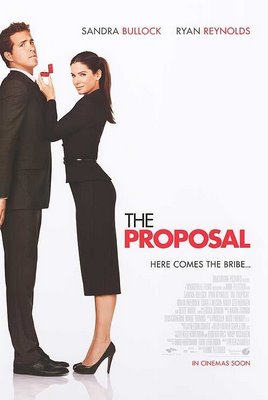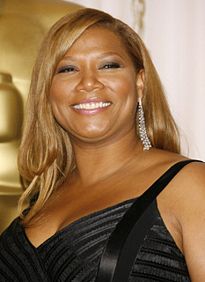The soul of an artist/Everyone's a critic
Generating a work of art is a daunting, hellish proposition on a good day.
First, there's the "creating something out of nothing" step. Blank page, empty easel, block of clay, silence, barren stage, bolts of unused fabric, yards of plain lumber, undeveloped film, unfettered website- you get the idea.
From there comes the idea of how to fill that space, actualize the ethereal, so others can view, listen, use or interact with whatever is virtually brought "to life." It moves from the spiritual to the material.
The artist - whether gardener or architect - has something to say. Something to show in his or her own way, using his or her own medium with the support of whatever muse(s) instigates the process.
Every artist has a learning curve - and whether for the love of the art alone or to make a living, with the guidance of mentors, experience, success, teachers, books, videos, coaches or supervisors - each stage has its own level of progress. Sometimes phenomenal, sometimes small strides.
Thomas Edison said he never experienced the more than 6,000 attempts to invent the light bulb "failures." He only saw them as steps toward creating what he envisioned.
Here's my definition of an artist: someone who can't NOT conceive and concoct his or her art. No matter the expense, time, sacrifice, the difficulty or drudgery. It's a passion that cannot be denied for any reason that would sound rational to most. They simply cannot stop doing making they do.
Like, I can't NOT write; I can't NOT direct; I can't NOT work with actors; I can't NOT produce. I can't NOT sing. And I can't NOT take photographs.
So we produce whatever we do for whatever inexplicable reason we do it. It takes thousands of hours, sweat, blood, tears, sleepless nights - depending on the art - collaboration or consultation. And in some cases, a lot of money.
My most recent work for public display is a feature film that showed at a film festival, in its festival incarnation. No film is actually finished until the distributor releases it in whatever form deemed most cost worthy/efficient. So changes may well be made along the way to clarify the vision.
Most people loved/liked it. Those who did not were freakishly harsh. We were not prepared for the hostility that ran deeply not just toward the film and me but the cast.
As usual, the folks who loved it called, emailed, sent flowers and cards to me and our cast. Those amateur critics who didn't went to industry websites. It was as if they were angry - about what?
One person said the film he saw wasn't the film advertised; we aren't responsible for that. I've seen a lot of this at film festivals - descriptions don't fit films. But I never got mad about it or felt the need to attack anyone's work because of it.
Funnily enough, igniting passions on both sides is seen as a good thing by those who market films. "Tapping into people's passion is the name of the game," I'm told.
Listening to good, even great, criticism, can assist one's artistic growth. Being vulnerable around those who are basically name-callers only creates confusion, hurt and wonder about why they're so upset, and why their comments are so personal.
They don't like the genre? Don't watch the genre. Don't understand the film? Maybe read the director's statement or learn something about it. In our case, it's film history. Don't think the film is done the way it "should be?" The way it's been done in the past? Check out why the filmmaker has taken a new path.
It's been a tough week trying to separate the wheat from the chaff, and letting the rest go. I think the reason it's so confusing to me is that I spend almost all my energy creating, so the thought of tearing someone's art down feels like an ill tempered, unnecessary waste of time. If I'm asked for a thoughtful critique, I'm happy to oblige, however.
I recall a friend whose book we celebrated when it came out on amazon.com. The book was about helping people break into the film industry. The writer had the experience, credentials and teaching background to do just that. She spent a long time writing the book and the publisher had a great editor supervise.
As soon as it appeared on amazon.com, absolutely vicious reviews appeared, along with the infamous "one star." The reviews had nothing really to do with the book's contents, but disparaged the subject and for some unknown reason, its author.
My friend was horrified and crushed; I was in complete shock. Why would someone do that for something so well intended, providing literally thousands of dollars' of free advice and education for like $13/US?
Anyone reading the comments, or just seeing the dreaded one star would think it was junk. It was anything but junk, but the person reading the "reviews" would have no idea of the book's true value.
I can only think of one reason someone would do this, other than they simply could: power.
Otherwise powerless people can feel a false sense of power putting someone or something down.
In this day of massive access to online outlets for opinion, there's plenty of powerlessness expressed. Online newspaper stories that allow comments find "opinions" that are shocking in their negativity, harshness and need to be self-righteously "right" about their perceptions. None other exist.
That's the cool thing about being an artist; we're always looking for different ways of seeing something.
OK, be that as it might - what does an artist do with such extreme reactions from an audience? After all, opinions are not facts.
Industry folks say ignore it. They do. Most actors don't read reviews because reviewers can be so fraught with extreme opinions either way - a true crazy maker if you buy into it.
A work of art is just that - like it or not, it's out there and we can't compromise our vision or style or work because a few people don't like it. Or, for that matter, *just* because people love it. We have to be true to ourselves as well as our vision and intent while growing and learning to be better at what we do.
My decision: let the others in the production team who aren't artists read them and bring excellent comments from which we can glow, grow or learn. And direct those who love it to places they can review it as well.
Most people in our audience had no idea they could even submit a "review"; they thought those they read were from professionals. Um, no. Something to be aware of when you read them, especially on industry sites now.
I'm also reading about films and performances that were at first eviscerated by established critics, hurting them at the BO. Here's an abbreviated list:
Star Wars ("Better luck next time, George..")
It's A Wonderful Life!
Wuthering Heights
Bladerunner (by Roger Ebert who now puts it on his top ten of all time)
Bringing Up Baby
The English Patient
Point is, a film, like any work of art - like it or not - will find its audience or not, regardless of what anyone says to persuade you one way or the other!
 Case in point ... critics panned Sandra Bullock's new film THE PROPOSAL.
Case in point ... critics panned Sandra Bullock's new film THE PROPOSAL.Stick a fork in her, she's done. Too old for the role at 45. Weak script. Bad casting. Even her charm can't save this film, low star rating on IMDb, yadda yadda.

Guess what? It came in #1 at the BO for the weekend, pulling in more than $34 million - beating out lots of now, wow, hip and hep au courant stars and remakes.
Too many folks were jonesin' for Sandra's gorgeous romcom presence and some light hearted, silly, reliable and familiar happy ending entertainment - probably with some old jokes, too.
I admit - as a "serious" indie film maker, I'm seeing it - even buying a little popcorn. And a soda.
Labels: artistic soul, critics, power, powerlessness, Roger Ebert, Sandra Bullock, the need to be right, The Proposal, wannabe critics

 Johnny
Johnny 

